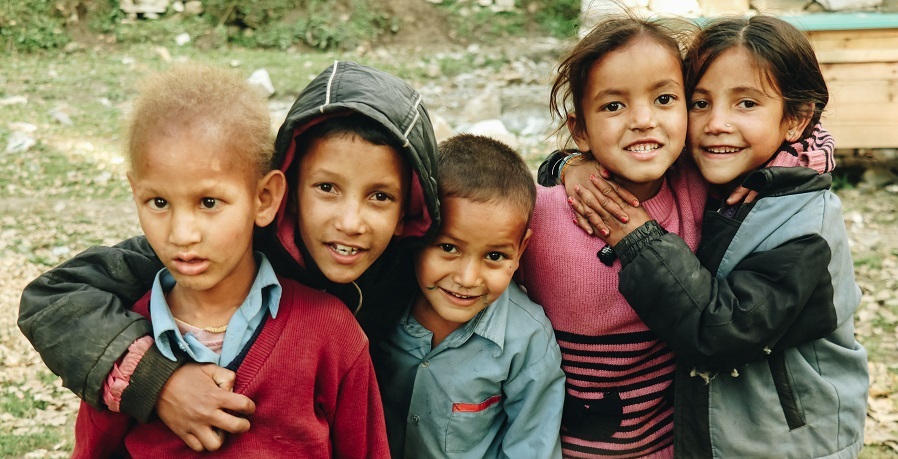Ways We Can Help Protect Refugees During the Coronavirus Crisis
COVID-19, also known as the coronavirus, has had a drastic impact on our everyday lives and how we are living them. Refugees, already a vulnerable group in society, are especially at risk.
Why Refugees are Particularly Vulnerable
Refugees, especially those in camps, do not have access to many of the precautions we are taking to avoid the spread of the disease. They may not have much access to clean water and the ability to wash their hands multiple times a day. They also do not have the same access to sanitation products we do and are unable to help stop the spread of the disease through those means. Refugee camps are also cramped spaces where quarantining one-self is not an option. COVID-19 can spread quickly among the dense population of camps. They have little to no access to doctors and medication if they experience symptoms or are sick. Underlying health issues which have been untreated or caused by a lack of access to vaccines can make the disease more deadly.
Also, many organizations that have been tasked with helping refugees are seeing volunteer numbers severely decrease. Staff and volunteers may be wary to work due to risk of contracting the disease or may be forced to quarantine themselves to avoid transferring the disease to those to whom they are giving care. Travel restriction will also impact organizations’ ability to access locations and provide services. Global News states that the UNHCR and International Organization for Migration have temporarily suspended their resettlement of refugees due to travel restrictions, leaving refugees in camps.
The Situation in Canada
Although Canada has closed its border to non-Canadians and permanent residents, the government is still allowing those irregularly crossing from the US. The government has stated that they will take those irregularly crossing into custody and preform a 24-hour screening for COVID-19. After passing this screening, Public Safety Minister Bill Blair, has stated that they will be moved to “appropriate shelter” for two weeks to undergo a quarantine. He has mentioned that this will be to a separate location than the housing to which they have normally gone, leaving the question of where they will be sent.
Immigration Refugees and Citizenship Canada has cancelled all in-person meetings until April 13th and the Immigration and Refugee Board has postponed all hearings except for detention reviews until April 5th. The Canada Border Services Agency has also suspended all removals for the time being, and those who have removals scheduled should be contacted and advised of the cancellation and next steps.
What Can be Done
In an Article on NPR, Muhammad Zaman outlines some of the ways that governments can help refugees during this crisis. The first way he outlines is ensuring refugee camps and refugees receive information on the disease and how to protect themselves. He emphasizes that this information must be clear and easy to understand. The second way he outlines is through an increase in funding for resources for refugees, such as screening centres and health facilities. Many may not know they are affected in the camps due to a lack of testing. The third way he outlines is through outside agencies gaining and building trust with refugee communities so that they will seek out and use services.
It is also important to make sure that travel restrictions do not prevent refugees from fleeing and seeking refuge in other countries. This along with funding for services for refugees is greatly needed. Many refugees do not get to benefit from the services and assets we receive from being citizens of a country.
Sources
https://www.nrc.no/news/2020/march/10-things-you-should-know-about-coronavirus-and-refugees/
https://globalnews.ca/news/6690715/un-refugee-coronavirus/
https://globalnews.ca/news/6689836/asylum-seekers-canada-coronavirus/
Share this article
Arghavan Gerami
Arghavan Gerami is the Founder and Senior Counsel at Gerami Law Professional Corporation ('PC'), a full-service immigration law firm in Ottawa, Ontario. Since 2011, Ms. Gerami has focused her practice on immigration and refugee litigation. Prior to that, Ms. Gerami worked at the Ministry of Attorney General and the Department of Justice and had the privilege of serving the Honourable Mr. Justice M. Evans at the Federal Court of Appeal on immigration and administrative law appeals. Ms. Gerami contributes to the Immigration Law Section of the Canadian Bar Association, the Canadian Association of Refugee Lawyers, and the United Nations High Commissioner for Refugees. Ms. Gerami has also published numerous journal articles and presented at various immigration and refugee law conferences and events across Canada.

